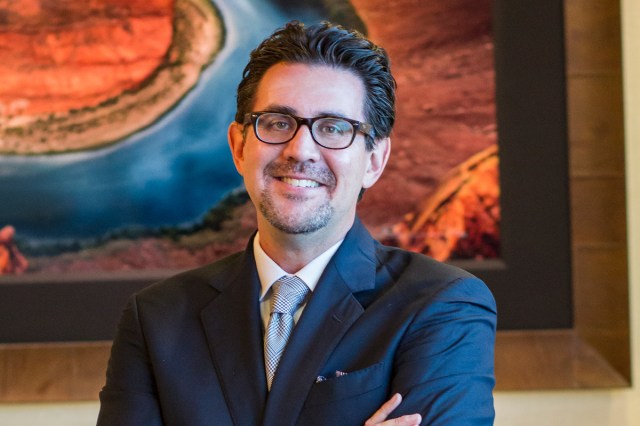
School is back in session across Southern Nevada, and students are headed back to campus to greet new teachers, meet new friends and face new academic challenges. Too often, the dialogue around our public schools focuses on the challenges incumbent in educating a diverse population of 324,000 students in the nation’s fifth-largest school district, neglecting the notable successes of the schools, students and teachers that make up the Clark County School District.
Consider, for example, that the 2018 school year concluded with a record 20,030 high school graduates, who finished with the distinction of having the highest graduation rate ever recorded
in the district. The 83.2 percent graduation rate by the Class of 2017 was an impressive increase of 8.3 percentage points from a year earlier, and it marked an incredible improvement since the 59.3 percent graduation rate reported in 2011.
A significant number of these students enrolled in rigorous Advanced Placement courses and successfully passed AP exams that typically translate into college credits. More than 14,000 students took nearly 25,000 AP exams last school year, with 49.5 percent earning a passing score of 3 or better, a 2.3 percentage-point improvement from the prior year. The positive results were attributed in part to efforts by the district to encourage students to take the test and commit funds to help students pay exam fees.
The seeds of these successful high school students were sowed in the elementary and middle schools they attended along the way, which makes the improvements among those CCSD campuses all the more encouraging. In the latest state school ratings, the number of CCSD elementary and middle schools earning a 5-Star ranking increased from 41 to 42, while the number of 4-Star schools climbed from 42 to 51. Importantly, about half of the 5-Star schools were elementary schools that serve high proportions of English language learners and low-income households.
Many individual schools earned recognition for their achievements. Sandra Lee Thompson and Bill Wallin elementary schools were named National Blue Ribbon Schools last academic year. The two schools were among just 342 selected by U.S. Department of Education. Two other schools – Walter Bracken STEAM Academy and Gordon McCaw STEAM Academy – were among just 61 schools to be named National Title I Distinguished Schools. Bracken was recognized for excellence in serving special populations of students, such as homeless, migrant and English language learners, while McCaw was recognized for exceptional student performance for two consecutive years.
Both Bracken and McCaw elementary schools are part of CCSD’s renowned magnet school program, which regularly wins national recognition for the breadth and quality of its educational offerings. During the last school year, 23 of CCSD’s magnet schools were recognized by Magnet Schools of America, including earning the association’s top honor. East Career and Technical Academy earned the Distinguished Merit Award as the Magnet School of the Year, and McCaw received the top award for a New and Emerging Magnet School Merit Award of Excellence. Eleven other local campuses were named Schools of Excellence, and 11 more were named Schools of Distinction.
There were also countless individual and group achievements throughout the student body, including three U.S. Presidential Scholars, 62 National Merit Scholarship semifinalists, robotics teams from Cimarron-Memorial High School and the Las Vegas Academy of the Arts competing in the FIRST robotics world championship, and the Centennial High School JROTC Academic Team making it to the U.S. Navy JROTC Academic Bowl Championship.
There are many reasons to take pride in our schools and our students. That said, we should also remember that these achievements don’t happen in a vacuum. The success of our students depends on attentive parents, dedicated teachers and support staff, school administrators, local leaders and state policymakers, all of whom play important roles in cultivating academic success. Together, they are changing the dialogue and the outcomes; and, most importantly, improving the long-term prospects of our children and our community.


